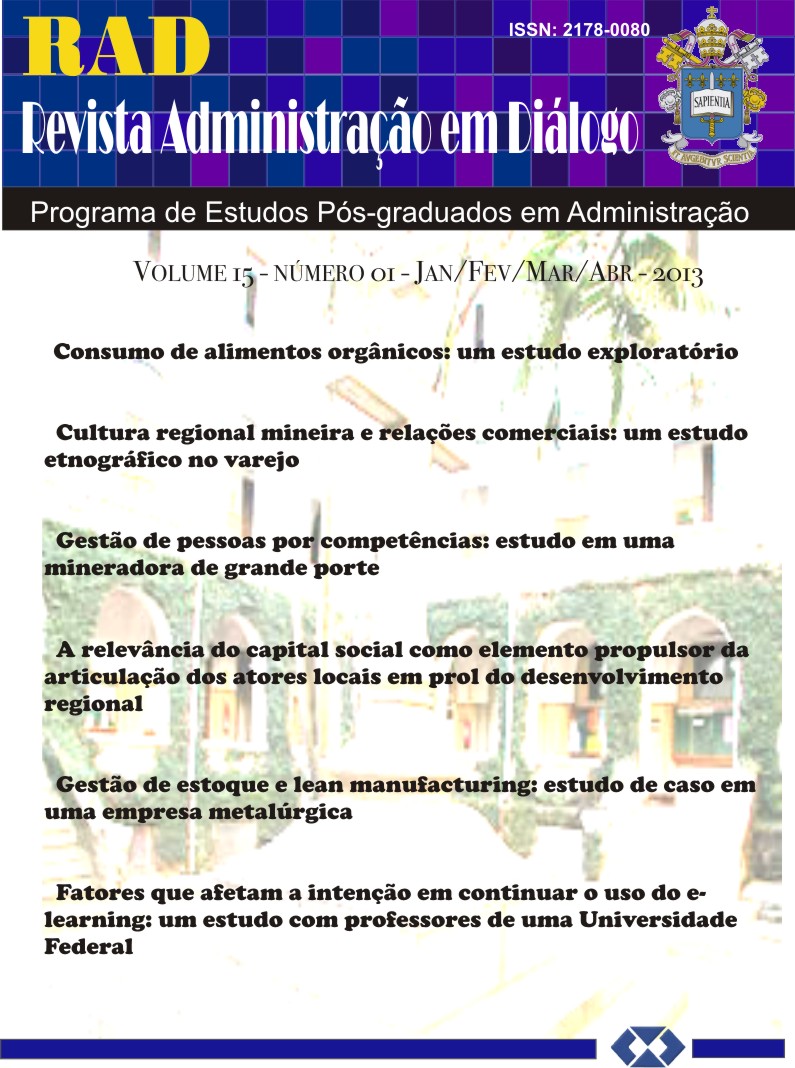INVENTORY MANAGEMENT AND LEAN MANUFACTURING: A CASE STUDY IN A METALLURGICAL COMPANY
DOI:
https://doi.org/10.20946/rad.v15i1.12095Keywords:
Lean Manufacturing, Inventory management, Metallurgical CompanyAbstract
This research aims to analyze the impact of the lean philosophy applied to inventory management as differential competitive performance in a metallurgical company and at the same time, establish parameters for comparison with the old management model, the Theory of Constraints. This is a descriptive case study, ex-post facto and sectional time. The first stage consisted of an exploratory survey and questionnaires. To collect data, personal interviews with managers in the areas of logistics, operations and employees on the shop floor were performed. As a result, it was observed that after the implementation of lean philosophy, the company achieved greater interactivity in information management between internal and external factors, which allowed the reduction of production costs, improved product quality disposing of large stocks security without compromising the level of service offered to the customer.Metrics
Downloads
Published
How to Cite
Issue
Section
License
Authors who publish in this journal agree to the following terms:
1. Authors retain the copyright and grant the journal the right of first publication, with the work licensed simultaneously under a Creative Commons Attribution License after publication, allowing the sharing of work with acknowledgment of the authorship of the work and initial publication in this journal.
2. Authors are authorized to take additional contracts separately, for non-exclusive distribution of the version of the work published in this journal (eg publish in institutional repository or as a book chapter), with acknowledgment of authorship and initial publication in this journal.
3. Authors are allowed and encouraged to publish and distribute their work online (eg in institutional repositories or on their personal page) at any point before or during the editorial process, as this can generate productive changes, as well as increase the and the citation of the published work (See The Effect of Free Access).








